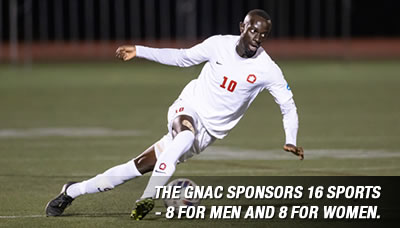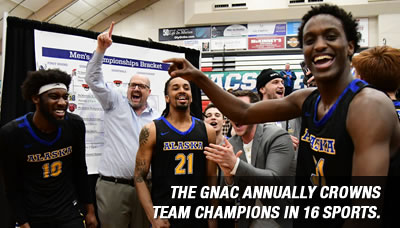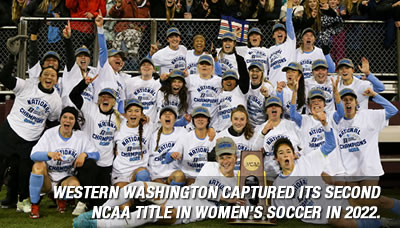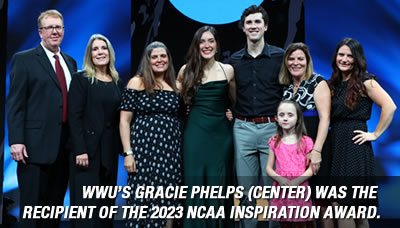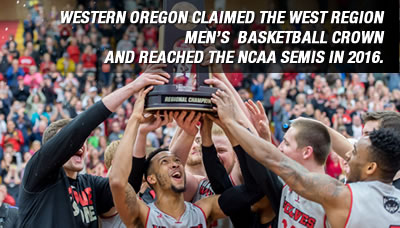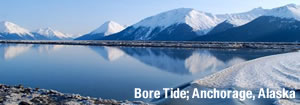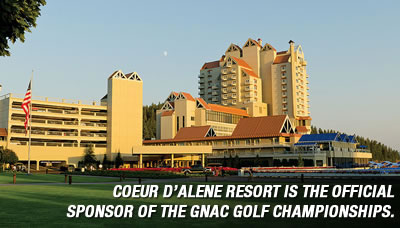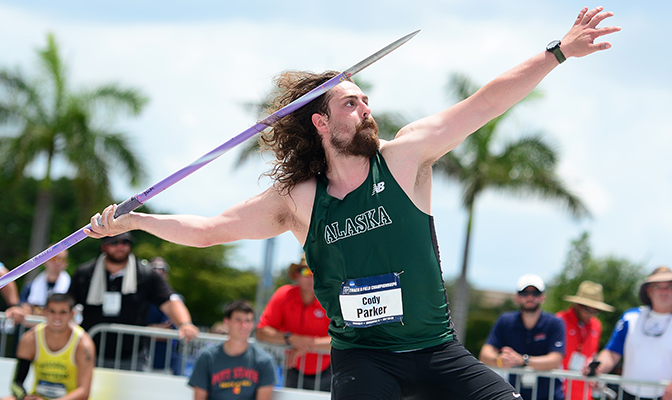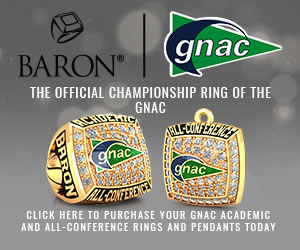Saturday, May 28, 2016
by Mark Moschetti, Seattle Pacific Sports Information
BRADENTON, Fla. – They’re now the best two javelin throwers in Western Washington University history. They’re the best two javelin throwers in Great Northwest Athletic Conference history.
But even before they took their first toss on Saturday, Bethany Drake and Katie Reichert knew full well that it could be awfully hard to wind up as the two best throwers in this year’s NCAA Division II Outdoor Track and Field Championships.
With that in mind, Drake and Reichert actually went home very satisfied with the performances that netted them second and third place, respectively, at IMG Academy Field.
The only person to throw farther than either of them was top-seeded Azusa Pacific senior Allison Updike, whose mark of 183 feet, 10 inches came on her very first attempt of the day.
That was a meet record for her – and pretty much lights out for everyone else.
“Heading into this year, we knew the competition was going to be good and it was going to be deep,” Drake said. “Allison threw great last year, too.
“I think it says something for D2 javelin that we have good competition. It makes you feel good when you know you’ve competed alongside the best.”
Count the Viking duo among the best. Drake’s throw of 177 feet, 3 inches was nearly six feet farther than her own GNAC record of 171 feet, 7 inches, set earlier this season. It also is the third-farthest throw in Division II history. Reichert’s bronze-medal mark of 177 feet is No. 4 on the NCAA list.
“It’s a great thing to end my collegiate career on,” Reichert. “I only PR’d by a few inches last year. So to come out with a 4-meter PR to end my season is pretty incredible for me.”
Just to show how far the javelin has come, Drake and Reichert finished one-two in the 2014 national meet at Grand Valley State in Allendale, Mich. Drake’s winning throw there was 165 feet, 3 inches; Reichert was right behind at 165 feet, 2 inches.
This was the last time the two besties get to compete as WWU teammates. Drake, who was injured last year, has one more season of eligibility remaining.
“It’s always been fun to have her by my side,” Reichert said. “We pushed each other through the good and bad. I think it has made each of us better. Just to with another one-two finish (among the two of them) is pretty awesome.
Back from the injury that sidelined her for 2015, Drake was glad to have just one more spring together.
“It felt good to get a good throw off, coming off last year, and not knowing how this year would go,” she said. “Praise God for the fact that I was able to come back and be healthy and compete alongside Katie for this last year.”
GNAC ALL-AMERICAN TRIO
The GNAC is known for the quality of its distance runners, male and female.
On Saturday, three of the speedier men all raced to All-American finishes in the 1,500 meters. Western Oregon sophomore David Ribich was fifth in 3:50.76, Simon Fraser junior Marc-Antoine Rouleau was sixth in 3:50.78, and Western Oregon senior Sam Noffziger took eighth in 3:52.37.
“I get sixth at the conference meet, and I get eighth at the national meet,” Noffziger said. “Just shows how strong this conference is. It’s great to run with everyone in the conference. We all know each other, we’re all friends and great competitors.”
Added Rouleau of all three making the podium, “That’s exciting for sure. We get better every year. I’m looking forward to the future and getting higher on the podium.”
FETTIG’S FOCUS WAS JUST TO SEE IT – AND BELIEVE IT
Like most of the other athletes in the meet, Tayler Fettig has been in Florida since early this week, even though she didn’t compete until Saturday.
She used much of that time just to see herself coming through with a big finish in the high jump. Come through, she did, clearing 5 feet, 8 inches to tie for second place on Saturday night.
“I’ve been locked in my motel room,” she said with a laugh. “I’ve just been visualizing and praying a lot. My parents are here, and I’m so glad they were able to come. They’ve kept my mind straight.”
Fettig said a better mindset – and lots of help from her trainer – were key.
“Mentally, I was more prepared and was able to visualize a lot more,” she said. “My trainer really helped me out. If it wasn’t for him, I don’t think my heel would be as secure as it is.”
BRONZE WAS WORTH THE WAIT FOR LEWIS
Payton Lewis wasn’t planning on such a long day at the pole vault pit. But he earned quite a nice reward for the extra time he spent there.
After three delays – two for weather reasons (including a 30-minute timeout for lightning) and one for an injury after a fellow vaulter’s pole snapped, Lewis emerged with the third place trophy on Saturday afternoon, clearing 17 feet even.
“I try not to worry about that stuff and just keep to what I’m supposed to be doing on the runway,” Lewis said. “When I actually put it all together and vaulted, they were awesome.
“It was a good experience – three delays, but I just fought through it and enjoyed my time here,” he added.
NOT MUCH PARKER COULD DO ABOUT THAT ONE
When Cody Parker needed a big javelin throw at the end of the preliminary round on Saturday morning, he stood and delivered. Having just seen Caleb Nieves Velez of Puerto Rico-Rio Piedras launch one of 227 feet, 5 inches to take the lead, Parker answered just moments later with a 228-11.
“It was nice to hit that in the final round and seal the deal on getting into the final,” Parker said.
But then Nieves Velez answered back on the second of his three final throws, planting it 249 feet, 7 inches from the runway. That was 76.07 on the metric scale, well beyond the 70-meter arc, the final white line on the field.
Parker knew that would be tough to catch, and by the end of the day, he wasn’t able to do so.
“A lot goes through your mind,” he said of absorbing what Nieves Velez had just done. “For me, I just try to block it out and not think about it. I try and do my best and hopefully, it’s farther than that guy. Unfortunately, that’s a monster throw, and I didn’t quite top it.”
QUITE A 12 MONTHS FOR DECKER
When she went to Michigan for last year’s nationals, Seattle Pacific’s Lynelle Decker had never made a finals and never won an All-American award.
But starting with a seventh-place finish in the 800 in 2015, Decker has run in nothing but finals and has piled up six All-American honors. The fifth and sixth of those came Saturday when the ran a two-second PR of 4:25.02 for sixth place in the 1,500, then followed up by taking fifth in the 800 at 2:09.08.
“I was talking about it (on Friday) – it’s a crazy feeling,” Decker said. “Just to be able to repeat that (making a finals) at indoors, and again this year at outdoors has been amazing and a great opportunity.”
FIRST ONE GOT IT DONE FOR HASKIN
Having dealt with his share of injuries this spring, Western Washington senior John Haskin was hoping another one wouldn’t flare up during the men’s javelin competition at NCAAs.
Unfortunately, one did – but not before Haskin threw far enough to get into the finals and eventually lock up an All-American fifth-place finish.
“It’s just an honor to even be an All-American again,” Haskin said.
Haskin’s first throw on Saturday was a season-best beauty – 211 feet, 6 inches. He was nearly as good on his second at 210-9 before finishing with a 193-11.
That long one sent him into the three-throw finals in fourth place. But after feeling something in his groin at the end of prelims, he passed on his fourth throw, ran up to the line on the fifth, only to stop short, and then passed again on his sixth.
Only one other competitor moved ahead of Haskin, so he was able to remain in the top 8 and make the awards podium.
“It was a lot of preparation that went into this meet,” Haskin said. “Most of the focus was just on rehab and getting ready. It paid off in the short run.
“I was hoping to get some more throws in,” he added. “But you take what you get.”

